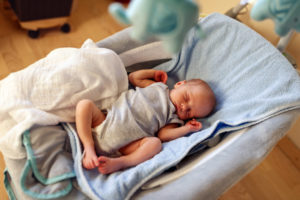According to the Florida Department of Health, studies from 2001-2005 suggest that the state averages 465 deaths per year from unintentional drowning. Similar studies suggest that Florida ranks in the United States in drowning deaths for young children. A more recent statistic points that in 2008 71% Florida’s drowning deaths involved children ages 0-4. On average 566 people are hospitalized in Florida each year for injuries suffered from near drowning. Costs of a near drowning-related hospital stay range from $10,000 for standard 2-day treatment to $4 million in case of brain damage.
The federal and state laws offer some pool regulations through the Virginia Graeme Baker Pool and Spa Safety Act of 2007, named after a 7-year-old who died after the suction of a drain entrapped her underwater. Entrapment occurs when a pool’s filtration system sucks a child under water. The federal law requires public pools and hot tubs to be equipped with an anti-entrapment drain cover. A safety vacuum release system is required for those pools or hot tubs with a single main drain. The U.S. Consumer Product Safety Commission enforces the law, and public places such as health clubs and hotels must comply or risk an immediate closure of the pool area. So the first step to pool safety is to make sure the pool drain complies with the law and has a safety vacuum release.
In addition to preventing the dangers from faulty drains there are other steps to make pools safer. Keep pools clean and clear so that swimmers can be seen if they are in trouble in the water. This can prevent drownings. Also clean and clear water is a sign of disease free water. Many pools with cloudy water may contain harmful bacteria. Believe it or not many deaths and injuries come from bacteria in pools and spas. Legionnaires disease is a disease that can kill and can be acquired from just sitting next to a dirty hot tub or spa. In a recent Orlando case a visitor from England died when exposed to Legionella bacteria and acquired Legionnaires disease sitting poolside next to a hotel spa next to the pool. If the hot tub is dirty or murky, stay away and contact the pool operator and the County Health Department. Your life may depend on it.
Floridians feel that drowning is preventable and that it is possible to decrease drowning-related injuries. Public places are not the only ones responsible for pool safety. Parents can take steps to keep their children safe in public and private pools by supervising them at all times. Small children, especially toddlers, are at a higher risk of drowning in any body of water, including hot tubs and fountains. In addition, parents can receive training in life-saving techniques and CPR in case of an emergency. As parents, enroll your children in swimming classes but also keep life vests on your children. Avoid inflatable arm floaties, as they are not as safe as safety approved life vests.
If you own a pool, surround it on all four sides with a study and high fence. The height of the fence may depend on your local ordinance. The fence should have a gate that self-closes and a latch that small children cannot reach. Pool owners should also keep safety equipment nearby, such as a shepherd’s hook and life preservers. Keep a cell phone or home telephone near the pool in case there is a need to call emergency responders. Keep children away from pool filters, as the suction force may prevent them from surfacing. There are local laws that govern pools and fencing. Make sure that your pool area complies. You are not only obeying the law, you may save a life.










Comments for this article are closed.